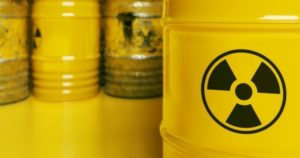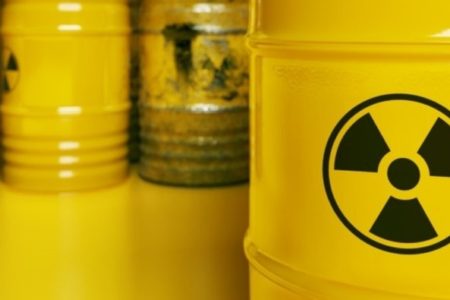Belgium’s Nuclear Research Centre (SCK-CEN) and the Institut National des Radioéléments (IRE) are to collaborate on a project to recycle highly radioactive residues resulting from the production of radioisotopes for medical purposes.
Belgium is one of the five major producers and distributors of radioisotopes for medical purposes. Each year, almost seven million patients around the world benefit from a medical examination that makes use 
Currently, more than 25% of those isotopes for medical purposes are produced in SCK-CEN’s BR2 research reactor at Mol. These isotopes are then treated with a chemical process by IRE before they are administered to patients. The residues left behind by that chemical process still contain a number of substances that can be recovered. These residues are currently stored in special containers at IRE’s site in Fleurus.
According to IRE, the storage capacity at Fleurus for storing these residues will reach its limit by the end of this year if the containers are not removed from the site. It has therefore taken several measures, including the acquisition of several additional storage containers which will allow on-site storage until 2021.
Through the RECUMO (Recovery of Uranium from Mo-99 Production) project, SCK-CEN and IRE will treat these residues “in accordance with the most stringent security and nuclear safety standards”. The residues will be diluted with low-enriched uranium and then purified by SCK-CEN to obtain a low-enriched high-quality substance that can be reused. The RECUMO project will also enable processing of residues generated in the future at IRE.
“This public-public partnership provides a structural solution for the management of all of the radioactive residues stored at the IRE’s site,” said IRE CEO Erich Kollegger. “It will it make possible to recover those substances for other uses, whilst at the same time ensuring that Belgium retains the expertise that is necessary to ensure the safe management of this nuclear legacy. It also confirms our excellent relationship with SCK-CEN, which we have nurtured for many years now.”
SCK-CEN Director-General Eric van Walle added that new cutting-edge infrastructures will be created in Belgium for the partnership and provide long-term jobs.
The RECUMO project embodies Belgium’s commitments in the areas of nuclear non-proliferation, SCK-CEN and IRE said today in a joint statement. It will be implemented in close collaboration with the Directorate-General for Energy of the Federal Public Service Economy, SMEs, Self-Employed and Energy, and under the supervision of Belgium’s Federal Agency for Nuclear Control, it added.


